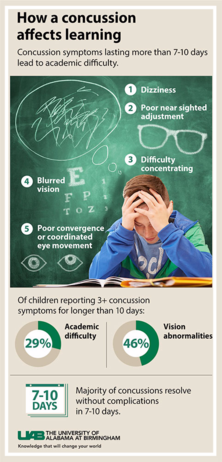More than half of the brain’s pathways are visual in nature. Therefore, it is difficult to have an acquired or traumatic brain injury without suffering a visual dysfunction. These visual dysfunctions can be the missing link to the overall recovery process, as they do not just directly impact vision. They can negatively affect memory, balance, spatial awareness, and processing speed, to name a few. Unfortunately, visual deficits are often not realized or addressed by other professionals during the rehabilitation process. On the outside, patients look healthy and unaffected, however, many can no longer work or go to school, can no longer take care of routine household duties, and they cannot keep up with family activities and in social situations.
Neuro-optometric Rehabilitation uses lenses, prisms, and therapy to develop new pathways in the brain to regain control of the eyes and the processing of incoming visual information. As a Neuro-Optometrist, Dr. Wolman works with this special group of patients, children and adults, to help them reclaim their lives which have been negatively impacted by brain injury.
Watch how our concussion patient's life transformed immediately from yoked prism lenses. Diane went on to complete a vision therapy program which addressed her weak visual skills, visual processing, and balance. She was able to finally go back to work.
Concussion
Each year, millions of people sustain a traumatic brain injury, of which approximately 75% are concussions. With more children and adolescents playing sports today, concussions are on the rise. Children and adolescents are more vulnerable because their brains are still developing. A concussion is an injury to the brain caused by a jolt or blow to the head or body that forces the head to move rapidly back and forth from a fall, a car accident, or physical activity. While patterns emerge among patient symptoms, no two patients are identical.
Common Symptoms of a Concussion/Brain Injury
- Headaches
- Blurred vision at distance and/or near
- Double vision
- Poor coordination, balance, and/or spatial awareness
- Reading slowly or avoiding reading
- Fatigue after maintaining visual concentration for a short time
- Dizziness or nausea
- Loses place while reading
- Poor recall of visually presented information
- Eyestrain
- Light sensitivity
- Rubs eyes frequently
- Impaired depth perception
- Visual field defect

Raymond suffered a concussion years prior to coming to our office. He had difficulty standing and walking without losing his balance. Watch what happened when he tried yoked prism during his initial evaluation. The prism was incorporated into his prescription glasses and it changed his life. He has been coming to vision therapy to address his weak visual skills and visual processing skills.